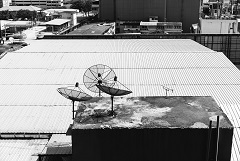What is Starlink how starlink works
Hi, Today we will uncover a new interesting topic which is What is Starlink how starlink works. Starlink is a satellite internet service operated by the company SpaceX to provide low-cost internet to dim and distant areas. It’s eligible of providing 150Mbps internet speeds to do up much anywhere in the world. Starlink is simple to install because it takes only about 5 minutes to install without any artisan. Company SpaceX is founded in 2002 by Elon musk, and it provides internet access range to 45 countries. SpaceX dispatches manufacture and designs rockets and space crafts. In 2019 SpaceX started launching Starlink and in September 2019 it has launched about 3,000 satellites into Low Earth Orbit (LEO). At about 550 km, SpaceX delivers the Starlink service with its large satellite array in LEO. SpaceX specially developed the Starlink satellite to be able to resist rain, snow and cold. There is a heater inside the Starlink dish which regulates temperature in case of any coldness.

How Starlink works?
It works with the use of a Starlink kit, which includes a satellite dish, wireless router/power supply, cables, and a base. The Starlink base is designed to be installed on the ground, or for a quick-start test of your internet connection. However, for the best installation, you should purchase a permanent mount.
Once you set up the Starlink dish, you can connect to the Starlink network and manage your service using the Starlink app, as the dish is self-orienting and connects quickly. In low Earth orbit (LEO), at about 550km, SpaceX delivers the Starlink service with its large satellite bunch. In contrast, other satellite internet services utilize geostationary satellites orbiting the planet.Since Starlink has numerous satellites that are relatively close to the ground, it can give lower inactivity service. Each satellite uses four phased array antennas and two parabolic antennas to give increased capacity.
Where to get Starlink Service?
Starlink claims it’s available across all seven continents — the US National Science Foundation announced in September 2022 that Starlink’s “polar service” is being tested in Antarctica, however, as of mid-September 2022, the Starlink site says service across Africa is coming soon. According to the site, Starlink will be available in Nigeria and Mozambique by Q4 2022. Starlink became technically available in 40 countries in September 2022 when it became available in Malta. It gives the best range available in Canada, the US, Mexico, Australia, Europe, and New Zealand.
According to plans, Starlink is currently expanding its services to RVs and boats, so you can take your broadband with you while you’re on the go. In 2023, Starlink will be available on all Royal Caribbean International, Celebrity Cruises, and Silversea Cruises ships. In addition, SpaceX is partnering with airlines like Hawaiian Airlines to offer Starlink connectivity.
How much does Starlink Cost?
The Starlink service can be obtained in the US for $110 per month with a one-time hardware purchase of $599. It does not have long-term contracts, data caps, or exclusivity requirements. For remote and rural businesses across the globe, Starlink business is available for $500 per month with a $2,500 one-time hardware purchase.
This service provides connectivity for services of over 20 druggies, storefronts and demanding workloads across the globe with promised download favorites of over 350 Mbps and inactivity of 20 to 40ms.
Starlink for RVs costs$ 135 per month with a one-time tackle cost of$ 599. Guests can break and pause service at any time and are billed in one-month supplements.
Starlink Maritime costs$,000 per month with a one-time tackle cost of$,000 for two high-performance outstations. It delivers up to 350 Mbps download massages while in the ocean. As with Starlink for RVs, guests can break and-pause service at any time and are billed in one-month supplements.
How does Starlink Affect Astronomy?
Starlink’s effect on astronomy is still being understood but the original feedback from night sky spectators and scientists is poor. The solicitude that Starlink is going to pollute the LEO area with artificial light from the satellites seems substantially creative.
A SpaceX trial, DarkSat, aims to reduce the light pollution of satellites. SpaceX claims to have lowered the light pollution on test satellites by around 55 percent compared to regular Starlink satellites. But this is still far too bright for astronomers’ ultra-sensitive instruments, which can observe cosmic objects four billion times fainter than that threshold.
While Starlink has just 3,000 or so satellites in the sky, it is not a huge problem. But when there’s a train of 12,000 or a massive upper limit of 40,000 satellites, artificial light pollution could come to a remarkable issue.
learn binance account